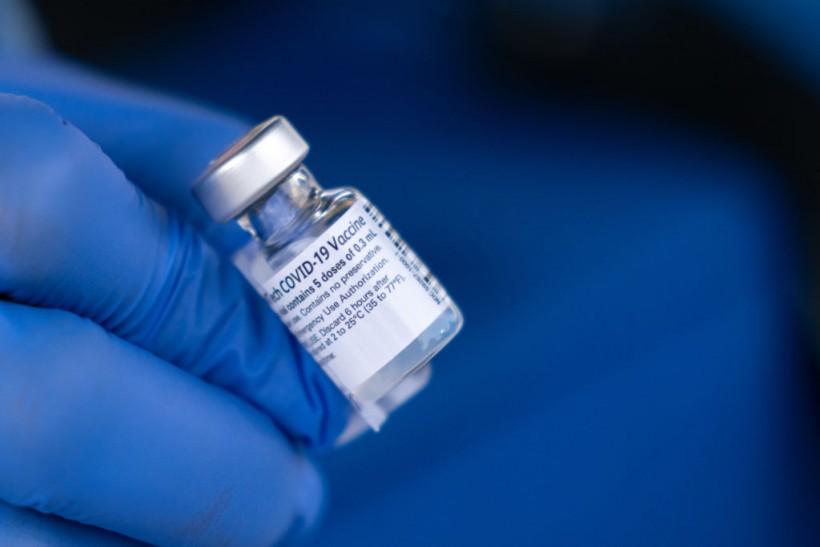
(Photo : Getty Images/Sean Rayford)
SAVANNAH, GA - DECEMBER 15: A nurse shows off a vial of the Pfizer-BioNTech COVID-19 vaccine outside of the Chatham County Health Department on December 15, 2020 in Savannah, Georgia. Georgia Governor Brian Kemp was on hand to witness initial administering of vaccines in the state.
After being administered a COVID-19 vaccine, in the case you experience severe side effects, there is basically no one to blame in a United States court of law. The federal government has bestowed companies including Pfizer and Moderna immunity from liability in the event that something accidentally goes wrong with the receipt of vaccines.
Vaccine Makers Exempted From Liability
According to Rogge Dunn, a Dallas labor and employment attorney, "It is very rare for a blanket immunity law to be passed. Pharmaceutical companies typically aren't offered much liability protection under the law," reported CNBC.
They would not be held accountable for their novel coronavirus vaccine's side effects when tested on volunteers.
Dunn added, "You also can't sue the Food and Drug Administration for authorizing a vaccine for emergency use, nor can you hold your employer accountable if they mandate inoculation as a condition of employment. The government doesn't want people suing the companies making the COVID vaccine. Because then, the manufacturers would probably charge the government a higher price per person per dose," reported News.ru.
Lawyers stated Pfizer and Moderna are safe from lawsuits if an individual administered by their vaccine has any side effects. People will also not be allowed to sue the Food and Drug Administration (FDA) for authorizing a vaccine for emergency use and employers who impose on employees to be vaccinated, reported KFI AM 640.
Health Canada also cited contract confidentiality in declining to provide information regarding drug makers not receiving indemnification for their vaccines, meaning they would not be held legally accountable in case a vaccine results in injury or a severe reaction.
Also Read: US FDA Panel Gives Support to Moderna, Endorses 2nd COVID-19 Vaccine
However, when the first shots were administered after arriving in Canada on Sunday, Procurement Minister Anita Anand stated, "We are definitely not any different than any other country in this world. Let's be clear that indemnification clauses in vaccine contracts are standard. All countries, generally speaking, are faced with the issue," reported CityNews.
In Australia, according to Associate Professor Nicholas Wood, to persuade the public to receive coronavirus vaccines for the good of the entire community, they will need compensation schemes imposed if there is a rare but severe side effect.
The Australian government declared it had provided the suppliers of two COVID-19 vaccines immunity against liability for rare side-effects.
The United States government paid out $4.4 billion in the course of over 30 years, covering injuries associated with a host of vaccines, including flu and polio. However, payouts for probable injuries from COVID-19 vaccines will be covered by a much less generous program.
COVID-19 vaccine injuries will be covered under the "countermeasures injury" compensation fund. It was established in 2010 to cover harm resulting from, for example, drugs to treat anthrax or Ebola outbreak or vaccines for a flu pandemic.
AstraZeneca has also been bestowed immunity from future product liability allegations linked to its COVID-19 vaccine candidate by most of the nations with which it has struck supply agreements.
With companies preparing to immunize hundreds of millions of people once the products are shown to work, the question of who compensates for allegations of damages in case of side effects has been a dubious point in supply negotiations.
Related Article: France President Emmanuel Macron Tests Positive For COVID-19








